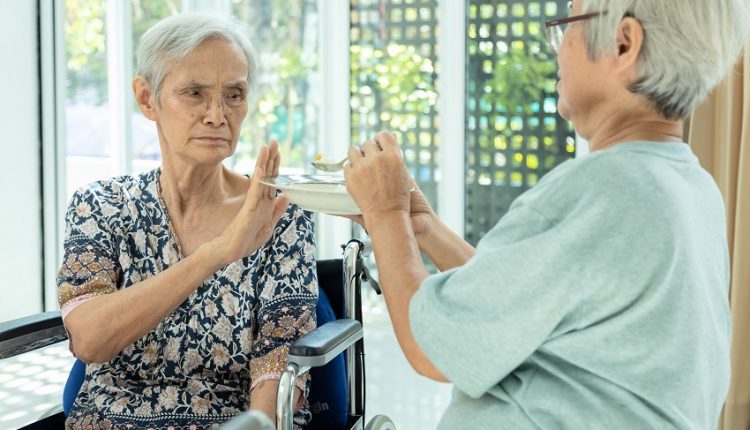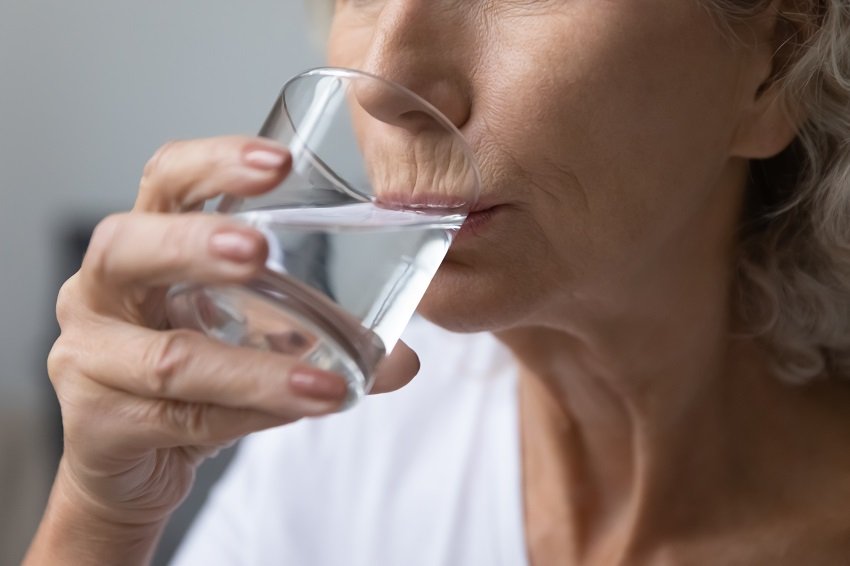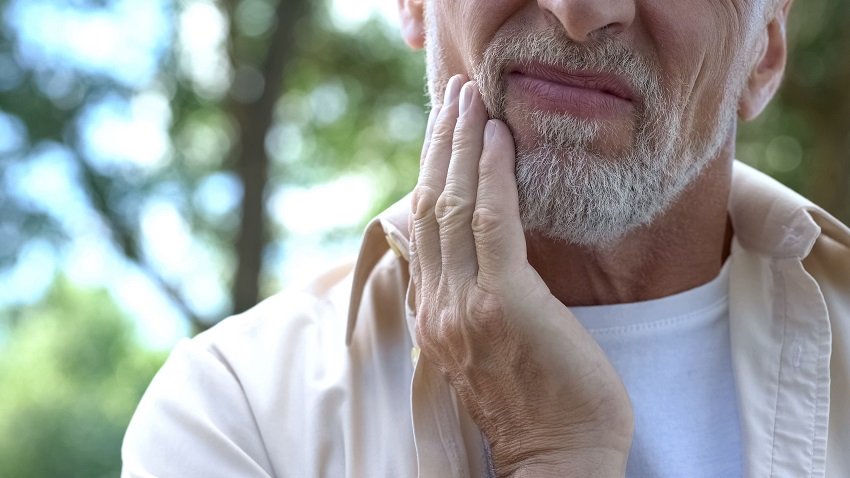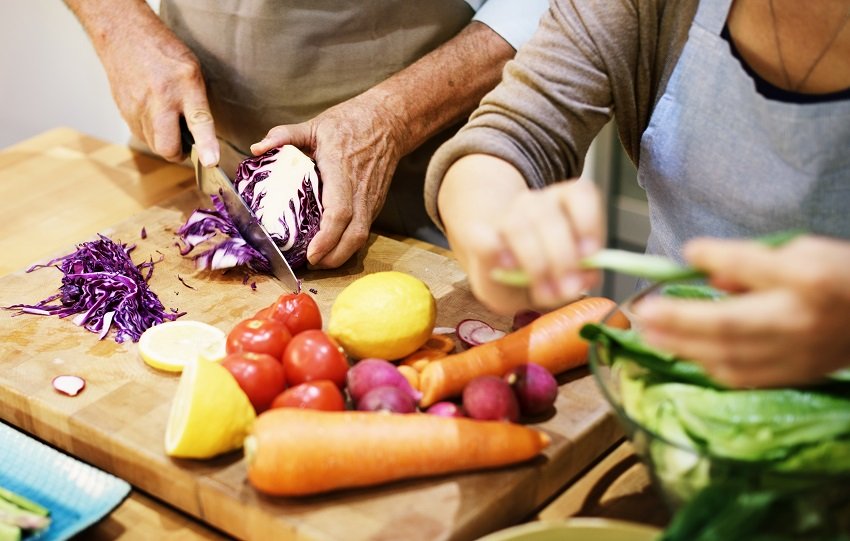
The gradual decrease in appetite when ageing is a natural process, and there is no reason to worry about it. But there is a long way between a low appetite and anorexia.
Anorexia weakens the immune system significantly and can lead to severe illness or premature death.
In today’s article, we will discuss the causes of anorexia in seniors and suggest some natural solutions to savour your foods with a great appetite.
Physiological Changes of Aging
Physiological and physical changes such as reduced feelings of hunger and thirst and psychological changes such as withdrawal and desire to be alone can change one’s habits and lifestyles during old age. Doctors and nutritionists say that the key to good health in old age is a balanced and varied diet and proper physical activity. Some of the changes that occur in seniors after the age of 75 are as follows:
Decreased Appetite
As we age, our appetite decreases, and as a result, we gradually lose weight.
The main reason for this is the malfunction of the satiety and hunger system in the brain. After a certain age, the brain does not command hunger, so the person usually feels full for longer hours. It will eventually reduce the number of micronutrients and minerals in our bodies.
Even for the seniors who stay active, lack of appetite and anorexia can decrease the efficiency of their workout sessions.
Read More: A Guide on What to Eat Before Workout For Seniors
Decreased Taste Buds & Anorexia
After 75, taste buds decrease and reach about one-third of youth. The remaining villi do not transmit the tastes well, and the seniors cannot distinguish the sweet, salty, sour, and bitter tastes, which is more prominent in determining the taste of salt. As a result, seniors add more salt or sugar to their diet, which increases the risk of developing high blood pressure or diabetes.
Reduced Feeling of Thirst
Thirst is an alarm signal that your body is dehydrated. As we age, this system also gets into trouble. The alarm would not make a sound when dehydration has reached a dangerous point. And as if that wasn’t enough, reducing the amount of water stored in your body doubles the risk of Headache, Dark-colored urine and fatigue.

At the age of 20, up to 65 percent of a person’s body is composed of water. There is a large amount of water in your muscles, and it decreases and reaches about 55 to 60 percent over time. The reason is muscle atrophy in old age. It is recommended that seniors drink water during the day without even feeling thirsty to prevent dehydration. Daily consumption of 6 to 8 glasses of water is essential for this age group.
Decreased Sense of Smell & Anorexia
Smell plays a crucial role in stimulating appetite and recognizing tastes. Men gradually lose their sense of smell from 35, but this feeling is more stable in women and continues to work vigorously until menopause. Decreased sense of smell occurs gradually and reaches its apex in old age, and it often harms seniors’ appetite.
Oral and Dental Problems

Experiencing pain while chewing food can also cause the elderly to reduce their dietary diversity. Older people who use dentures also sometimes have this problem because the shape of the face changes with age, and a denture that fits the jaw at age 65 is no longer practical at age 70. Regular visits to the dentist and solving this problem can help seniors have a varied and balanced diet and increase their appetite.
Digestive Problems
With age, the digestive system does not undergo fundamental changes, but small changes affect your ability to digest food. Decreased salivation and dental problems or poor digestion greatly influence digestion. Under these conditions, food is digested later, constipation is more likely to occur, vitamins and minerals, especially calcium, are less absorbed, and the use of vitamin and mineral supplements becomes a must for seniors.
Metabolic Disorders & Anorexia
As we age, our cellular absorption of vitamins and sugars decreases. On the other hand, the development of hormonal disorders threatens seniors’ health. Some people also develop insulin resistance, which can lead to type 2 diabetes over the years and, if left untreated, can have serious side effects, particularly on blood vessels.
Contents
Solving Anorexia in Seniors
Eating three meals at a specific time in the day is not easy for seniors struggling with anorexia. Instead, replace the three main meals with 6 to 8 light meals. You should eat a little food or drink every 90 minutes. Barley, yogurt, fruit, or biscuits are also good snacks that you can eat between the main meals to increase your appetite and food intake.
Foods to Increase Appetite in Seniors

Garlic
One way to increase appetite is to consume garlic daily. Add three to four cloves of finely chopped garlic to a cup of water. Boil it for a few minutes and then pass it through a strainer. Add two tablespoons of lemon juice and a pinch of salt. Drink this solution twice a day for several weeks.
Ginger
Take half a teaspoon of chopped ginger and add a little salt. Eat 30 minutes before meals a day for a few weeks. Another option is to mix half a teaspoon of ginger paste, a few lemon drops, and some black pepper powder. Eat on an empty stomach for several weeks and every other day. You can also drink a few cups of ginger tea every day.
Read More: Spices To Strengthen The Immune System Of Seniors
Orange
Another way to increase appetite in the elderly is to eat oranges. Eat a few oranges several times a day or drink a glass of fresh orange juice to increase your appetite. Add salt, lemon juice, and a little black pepper to make your juice more palatable.
Mint
Consumption of mint is another way to increase appetite in the elderly. Drink two teaspoons of fresh mint juice or a few cups of mint tea every day.
To make the tea, pour 2 teaspoons of dried mint leaves into a cup of hot water. Leave it for 10 minutes and drink it.
Read More: Incredible Benefits Of Black And Green Tea For Seniors
Supplements to Increase Appetite in Seniors
Folic acid or folate deficiency can cause anorexia, so treating this deficiency with increased folic acid intake may increase seniors’ appetite. Vitamin K deficiency can cause a lack of appetite and lead to bone loss, lethargy, bruising and easy swelling. So, consult your doctor about using appropriate multivitamins to increase your appetite.
Final Words
Grumpiness, over-sensitivity to criticism, compulsiveness, depression, unprovoked anxiety, and longing to be alone are just a few of the signs that often accompany the onset of anorexia. None of these signs should be ignored or be associated with the process of ageing—remember that.
My mother is not even 75 yet, and she has lost the ability to enjoy eating. She is not picky and eats with us, but she eats very little. I’m worried. Do you think there’s any way I can help her?
Based on my experience working in a nursing home, lack of food appetite is common among older adults 55 years or older. the best ways I can suggest are:
1. try to cook softer foods for them
2. add colourant and flavouring agents to make the food appearance more appetizing
3. use some ingredients in their food to enhance its taste and odour
4. encourage them to be more physically active to enhance their sense of hunger
5. check any possible signs of depression since it is one of the common causes of anorexia
I remember 2 years ago I had a problem with my digestion system, it’s truly a disaster, because you can’t eat enough, and always feel hungry, also you always have pains in your stomach. I think as seniors we need to change our diet to reduce the side effects of ageing.
Are you sure about this stuff?! how is that possible to lose appetite with age? I’m 58, and honestly, I eat and drink like a horse! I indeed work out a lot. But the food tastes as good as my childhood, sometimes even better!
Tom, I think it differs from person to person, but it’s true, both my grandma and grandpa have lost their appetite, but sometimes I think they do it on purpose! Especially when they’re sad or alone.
Speaking from years of experience dealing with this nightmare,
EVERYTHING annoyed me; friends and family were intolerable. Even the sound of a fan pushed me on edge. I was so hungry; I clenched my fists until they bled. But I didn’t eat. That was the only rule.
I stopped sleeping. Rest was a thing of the past, my heart raced, and I felt scared constantly, and I didn’t know why.
This lack of sleep made me even more numb yet anxious, and caffeine became my best friend.
I even forgot about any goals, dreams or hobbies…
My mum lost all her teeth because of anorexia. We weren’t aware of this disease until it was too late. She could’ve had her teeth. Don’t be careless about it and check your beloved ones up with a doctor.
Now I realize that my grandma suffers from Anorexia. She has all the symptoms mentioned above. She used to eat healthy food when younger, but now, due to Anorexia and losing taste buds, she has turned to foods with a more pungent taste. What has worked for her is adding spices she likes that stimulate the appetite, such as black pepper, curry and fragrant herbs like dried basils. Let’s ask them what they like and encourage them to listen to their body.
I have some of the symptoms above! But I should also mention that it’s just two weeks that I have recovered from Covid-19. I’m worried now. Is it Anorexia or COVID’s side effects?
I’ve never heard of such a disease. That’s pretty unbelievable to me since my friends, and I eat and drink way too much! Anyways, thanks for sharing this informative article.
It’s been five years since my grandmother has lost her appetite. Not only does she not care for cooking for herself, but she also doesn’t eat the healthy amount of calories she needs per day. Some days she just boils an egg or two and eats it with boiled potato, and that’s all she eats during the day. My mother tried sharing meals with her to increase her food intake, but ever since the pandemic, we don’t see each other as much. I suggested she take supplements to increase her appetite, but she refused. I believe the problem is that she doesn’t think of her anorexia as an actual problem that needs to be addressed. Does anyone know how I can convince her otherwise?
I remember telling my grandmother to always put her body’s health first by eating healthy and regularly. We found out a while after her “low appetite” went longer than a passing phase that she had anorexia. The good news is that most people can overcome anorexia with effort, support, and a lot of patience.
As an elder, I have all these gastrointestinal problems and the only thing that works for me is the ginger. It soothes my stomach and makes eating a much better experience.